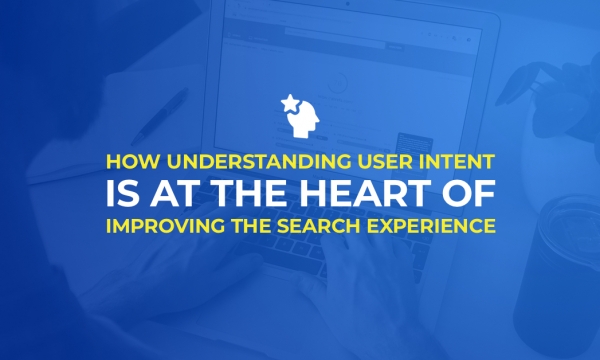
When Google officially declared that a HTTPS protocol would be considered as a positive ranking signal, it was largely taken as another sign of Google trying to enforce what it considered to be ‘best practice’ on organisations competing on the web. Google claimed that the decision was about protecting the safety, security and privacy of its users.
But almost two years on, what has been the impact of this announcement? Have we seen brands rushing to move across to a HTTPS protocol and what, if any, impact has this had on the SERPs?
We took a look at the data, and revisiting some previous data, to find out.
Brands are switching to HTTPS – and the rate of change appears to be getting faster
When we first looked at this issue back in September 2014, the number of HTTPS pages ranking in the top 15 search results for our dataset was relatively low. By August 2014, just 6.1% of the pages in our survey sample were behind a HTTPS protocol, and the figure had fluctuated between 5.72% and 6.01% in the five months prior.
Proportion of HTTPS results in positions 1-10 (all keywords): March 2014 – August 2014
Fast forward to 2016 however and, for the same data sample, we see a much bigger proportion of pages in the top 15 positions having a HTTPS protocol. In fact, this has increased month-on-month since November 2015 (17.92%) to 24.85% in March 2016.
Proportion of HTTPS results in positions 1-10 (all keywords): October 2015 – March 2016
The data clearly indicates a growing number of websites with a HTTPS protocol in the top fifteen Google search results for our monitored sectors. It is not possible to accurately pinpoint whether this is due to Google specifically improving the ranking of these pages as a result of HTTPS, or simply due to a growing number of high ranking pages moving to a HTTPS protocol (something that will escalate with WordPress confirming that it will automatically move accounts to HTTPS), but this data does at the very least provide a strong indication of a trend for more secure internet experiences – something that Google is publically championing through its algorithm.
The prominence of HTTPS varies from sector to sector
When we looked at this data back in August 2014, there were signs that the impact, or at least the take-up, of HTTPS was relatively minimal. In fact, it wasn’t until we looked at particular sub-sectors that we identified a stronger trend between HTTPS and higher search rankings, although of course, it isn’t possible to isolate the impact of HTTPS from other potential ranking factors.
It’s a similar story in 2016. Whilst there is a notable shift towards HTTPs across the board, the increase is more pronounced in certain market sectors – with close to half of all top ten gambling results, and around 40% of top ten results in the travel sector, returning a HTTPS page.
Proportion of HTTPS results in positions 1-10 for respective sectors (all keywords)
When we take a more granular look, we see that in some markets in particular, we are approaching 100% adoption of HTTPS protocols amongst the leading brands. In the example below, we can see huge adoption of HTTPS in the short term loans market. Again, whether this is the result of deliberate intervention by Google or a decision taken by the leading providers is impossible to accurately determine, but we cannot underestimate the degree to which Google dictates behaviour – particularly in a SERP that is scrutinised as closely as the short term loans market.
Personal Finance: Short term loans keywords. Proportion of HTTPS results in positions 1-10
It would appear that short term loans is actually driving much of the HTTPS shift in the financial services market, with this keyword cluster consistently returning HTTPS results, far more than any other of the keyword clusters that we assessed in the financial services sector.
Proportion of HTTPS results in positions 1-10 for individual keyword markets in the Personal Finance sector
In the legal sector, as we say in our analysis of the 2014 data, it is Wills and Probate which is delivering the bulk of HTTPS results, although the figure has increased from 8% of results to close to 35% - more than one in three of top ten results returning a HTTPS page.
Proportion of HTTPS results in positions 1-10 for individual keyword markets in the Legal sector
But what about the lesser scrutinised markets?
As in our previous analysis, the level of consumer trust and search engine scrutiny appears to be a factor in whether high-ranking pages have a HTTPS protocol. Looking at a lesser scrutinised sector, such as retail, we can see that not only is the proportion of HTTPS pages lower, but the trend to move towards HTTPS is much less pronounced.
Proportion of HTTPS results in positions 1-10 in the Retail sector (all keywords)
However, even in this sector, we see one keyword cluster in particular in which the HTTPS protocol is being prominently used – the pharmaceutical sector.
Proportion of HTTPS results in positions 1-10 for individual keyword markets in the Retail sector
This is one of the most highly regulated retail markets, with specific regulations in the UK and Europe over the sale of pharmaceutical products, so it is perhaps understandable that a secure web experience is expected as the norm in this market. Other forms of health retail, including cosmetic surgery and optical care, are also disproportionately returning HTTPS results compared to the rest of the retail sector.
What can we learn from this?
This analysis is not going to provide us with a clear conclusion on how Google is treating HTTPS pages, but what it does do is provide us with indicative trends that more high-ranking pages are now on HTTPS protocols.
The trend however seems to indicate that in highly regulated sectors at least, a HTTPS protocol and a secure web experience for your users is becoming less and less optional by the day. Whilst providing that security is not going to automatically result in a high ranking, the sheer volume of competitors that are offering one is going to put those that don’t at a disadvantage. Google is on record that it values secure web experiences, and it seems that many more brands are responding accordingly.











